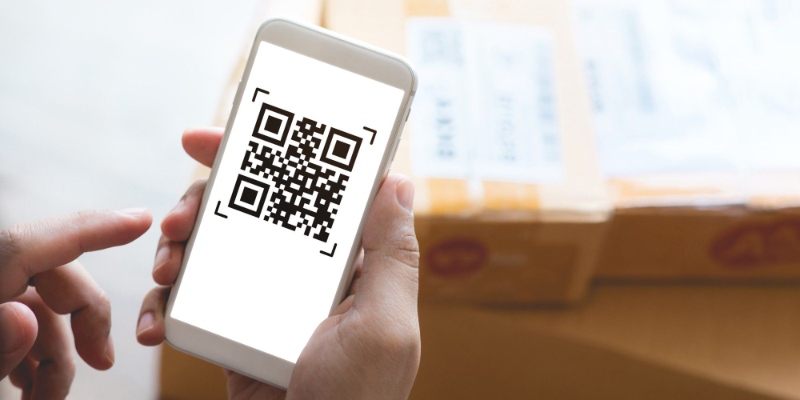What seems evident to a reasonable mind can not always be too obvious. Although it should go without saying that scanning a QR code is required when making a UPI payment, some con artists succeed in persuading their unsuspecting victims that the same procedure may be used to receive money. You might be astounded by how frequently they are successful in their malicious deeds.

Arvind Kejriwal's daughter, Harshita attempted to sell a used sofa set on an internet classifieds site but instead lost 34,000 rupees. She is not alone. Recently, a number of these situations have come to light.
On Mumbai's Reddit group, another victim of online fraud revealed his experience. This Mumbai resident said that he intended to use an online marketplace to sell his furniture. One prospective "customer" called him after reading the advertisement and requested him to scan the QR code.
He was originally hesitant, but after being assured that it was the only option to sell the furniture online, he became persuaded.
He scanned the QR code because he was new to online selling and thought he would get the money, but he really lost 5,000 rupees. Much to his astonishment, the con artist told him that in order to get the money that had accidentally been transferred, he needed to scan another QR code.
But this time, he refrained from falling into his trap and instead went to the police station to report the crime. There, what he saw scared him. He came to understand that daily scams of this nature occurred. One guy claimed to have lost Rupees 75,000, and another claimed to have lost Rupees 14,000.
These uninspiring examples should serve as a warning to never scan a QR code in order to receive payment, no matter how alluring the offer may be.
In addition to the QR code fraud, there are other more internet scams that defraud unsuspecting victims of their hard-earned money.
Here, along with some helpful advice, we list a few of these:
Granting remote access
One can grant remote access to their device by downloading an untrusted program. Fraudsters may take advantage of this to steal money through UPI.
Phishing fraud
A few payment links are delivered via SMS. When you click the link, your phone's UPI payment app opens. You would then be prompted to choose one of the applications for automatic debit. The money would be immediately taken out of your account when you gave your consent.
Sharing OTP & PIN
Customers are frequently advised by the RBI not to share their UPI PIN or OTP with anyone. Despite this, some scam artists are able to persuade victims to disclose the OTP they received on their phones. Once the information has been shared, scammers can confirm a fraudulent transaction and take the money.
False handles
Some clever hackers use identities like SBI or BHIM on their UPI social pages to make it appear as though they are using a legitimate UPI network. Users of UPI should be cautious when using these strategies.
How can I keep secure?
- Never divulge your UPI ID or bank account information to strangers.
- Deal in cash if at all possible in a similar circumstance.
- Never use a QR code scanner that someone sends you.
- Never divulge your OTP to anyone. OTPs should be handled with confidentiality because that is what they are.
- You should verify the legitimacy of the person on websites like OLX. Check that by looking at your profile photo, name, phone number, and the date you joined the platform. OLX will indicate whether the account has ever been reported. Dealing with such persons requires caution. Moreover, most
- Secure it with a code if you utilize UPI. A security pin can be put up by users of Gpay and PhonePe. As a result, it will request the code when you first launch it.
How to avoid getting scammed on the internet?
1. Verify details of buyer/seller before proceeding to payment.
2. Any individual showing urgency or not waiting for a reasonable amount of time is likely to be a scammer.
3. You should never scan a QR code, share an OTP, or visit a link given by anyone on the internet.
4. Your One Time Password (OTP), UPI pin, and other secret information should not be shared on WhatsApp. Never provide banking information if anyone asks you to and always contact your bank. There is a possibility of fraud here.
5. It is recommended that digital escrow platforms be used for payment. When making an online payment with Escrow, you do not share your financial information with anyone. There is a platform for escrow called Vouch.
Digital Escrow Service In India.
Digital escrow services are offered by many companies in India. Among the most trusted is Vouch.
Vouch’s Digital Escrow service is a transparent way for buyers and sellers to build trust and secure a clean transfer of product and payment. Sellers can feel assured that they will be fairly compensated promptly, and buyers will feel confident that their orders will be delivered as expected and on schedule. Vouch Digital Escrow keeps you updated and informed at every step of the transaction process till the end. Vouch’s professionals are always available to assist you with all queries that you may have during the entire transaction process.
There is no scope for deceit or fraud since the payments, shipping, delivery, and execution are carried out under the honest and watchful eyes of the Vouch’s professionals. With Vouch, any business transaction becomes transparent, uncomplicated, and hassle-free.
Check back here to learn more about Escrow and how to protect yourself from fraud.
----------------------------------------------------------------------------------
Safety is not just about protecting your credit, debit card number, and UPI accounts. It's about having control of your money till you've received the product or service you bought online!
As you're now aware of the importance of online safety, let's get your transactions secure on Vouch. It's just a click away.






